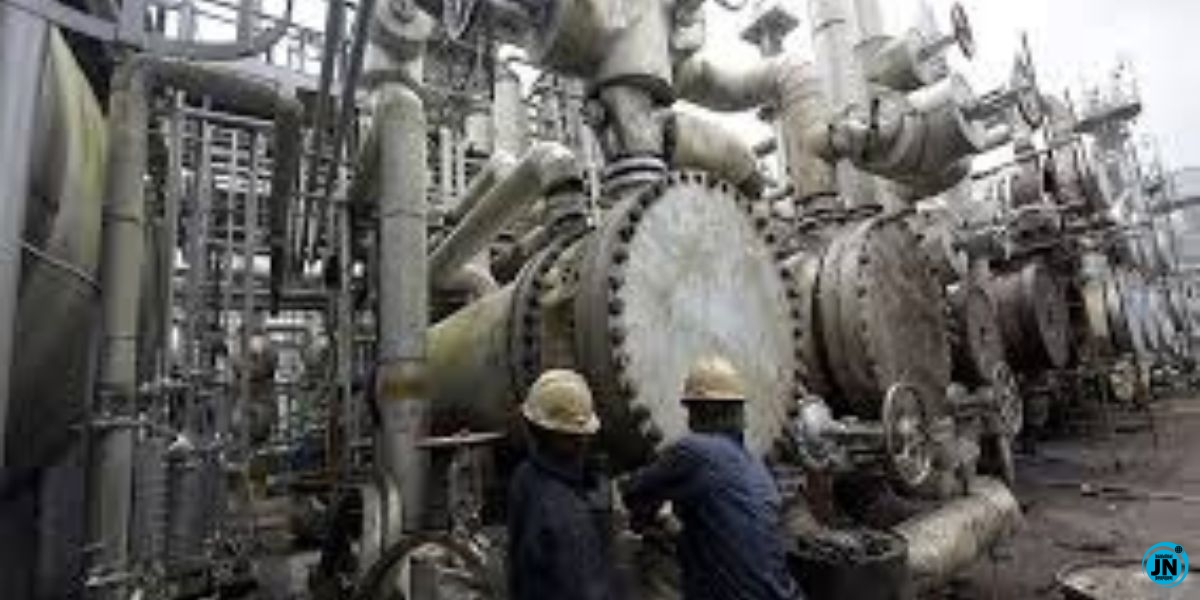
Oil marketers [/b]have commenced loading Automotive Gas Oil (diesel) and Dual-Purpose Kerosene from the Warri Refining and Petrochemical Company (WRPC), following its recent resumption of operations. This move marks a significant step as the refinery begins its process of revitalization after a long period of inactivity.
The development was confirmed by several dealers to Sunday PUNCH on Friday [/b]as they expressed their hopes for the refinery to expand its output to include Premium Motor Spirit (PMS), also known as petrol, in the near future.
The WRPC, which is managed by the Nigerian National Petroleum Company Limited (NNPCL), resumed operations on December 30, 2024, following the announcement by the Group Chief Executive Officer of NNPCL, Mele Kyari, during a facility tour that the plant had been undergoing rehabilitation. This marked a new chapter for the refinery, which had been dormant for years due to maintenance and other issues.
During his visit to the refinery, the Chairman of the Delta State chapter of the Independent Petroleum Marketers Association of Nigeria (IPMAN), Harry Okenini, acknowledged that the refinery was operational but not yet functioning at full capacity. He confirmed that marketers had started loading diesel and kerosene from the plant, a crucial development for addressing the ongoing demand for these products in the region. However, Okenini noted that the refinery had not yet resumed the production of petrol, which has been a concern for many stakeholders in the industry.
Okenini stated, “Currently, there is no production of petrol, so we are not loading PMS. However, we expect to begin loading PMS soon. The plant is operational, though not at 100 percent capacity.” He further added that, “At the moment, only Automotive Gas Oil (diesel) and Dual-Purpose Kerosene are being produced and loaded for consumption. By February, we anticipate the production of cooking gas, PMS, and other products.” This timeline offers hope for the revitalization of the refinery and its ability to meet the energy needs of the country, especially considering the scarcity of PMS and the resulting fuel shortages in various parts of Nigeria.
Similarly, the National Chairman of the Surface Tank and Kerosene Peddlers branch of NUPENG, Israel Omokere, confirmed the refinery’s operations, emphasizing the loading of kerosene and AGO while expressing optimism that PMS will be available soon. This sentiment was echoed by Kingsley Erituoyo, the Delta State Chairman of the same NUPENG branch, who highlighted the encouraging progress of the refinery’s operations after years of inactivity. He expressed excitement over the plant’s return to service, which had been a long-awaited development for the local community and the broader Nigerian oil sector.
Despite these positive steps, observations at the WRPC site showed limited truck movement and relatively low operational activities compared to the plant's peak periods. Sources within the refinery explained that currently only one of the plant's three operational units is functional. This unit is producing diesel, gas, and kerosene, which are being loaded and distributed. However, the second unit, once operational, is expected to handle the production of PMS, while the third and largest unit, which is more complex, will take the longest to come online and be fully operational.
The refinery’s progress towards full capacity is slow but steady. According to industry insiders, significant work remains to be done before the refinery can begin large-scale production of PMS. While the plant is currently capable of loading around 50 trucks daily with the products from the single operational unit, it could eventually handle over 100 trucks once all three units are functioning. This increased output will be crucial for meeting the rising demand for petroleum products across the country.
During a visit to the refinery, journalists observed that the facility’s main entrance appeared relatively quiet, with security personnel restricting photography on the premises, a standard procedure during such sensitive operations. The situation at the WRPC remains under close monitoring as the refinery works to scale up its operations and ensure that the Nigerian market can benefit from its renewed activity in the coming months.

